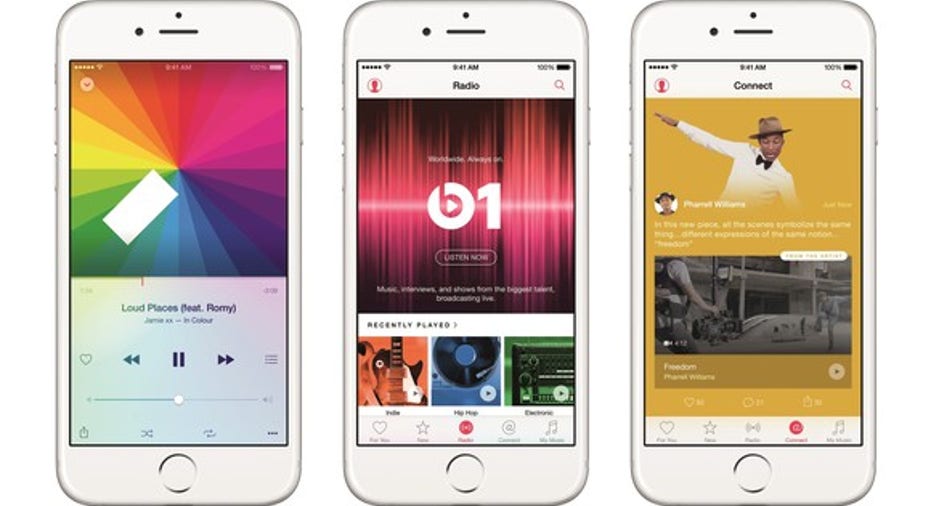Broadcom Ltd Already a Big Winner From the Upcoming iPhone 7

Image source: Apple.
Apple (NASDAQ: AAPL) isn't expected to unveil its next-generation smartphones, the iPhone 7 and 7 Plus, until Sept. 7. However, even before the devices are publicly available and the component tear-downs completed, there is one company already enjoying a financial boost from these new devices: chipmaker Broadcom (NASDAQ: AVGO).
More Broadcom content inside
Broadcom CEO Hock Tan said revenue from sales of wireless chips came in at $1 billion last quarter, up 27% from the previous quarter and representing 27% of consolidated revenue for the quarter. This result, Tan said, was "somewhat stronger than expectations".
Tan attributed this sequential growth primarily to the "start of a ramp from a large North American smartphone customer as they transition to their next-generation platform". He stated this development was "further enhanced by a substantial increase in Broadcom's content in the new handset".
He also cited "demand increases at a large Asian handset customer", likely in reference to Apple-rivalSamsung.
In other words, not only is Broadcom benefiting from Apple's inventory build-up of its upcoming smartphones, but the dollar value of the chips that Apple is buying from the company on a per-device basis is also up from the prior-generation offering.
What's driving this boost?
Broadcom's content within the iPhone mainly consists of "cellular [radio frequency] content", which Tan explains mainly consists of the company's FBAR filters "and the front-end modules associated with that FBAR".
According to Tan, the need for smartphones to handle the "continued increase in the number of [cellular] bands", coupled with bandwidth-enhancing technologies such as carrier aggregation, is a key driver of the content growth story in high-end smartphones such as the iPhone.
Tan expressed confidence that this content growth would go on "in the next two years".
How about Wi-Fi content?
Broadcom, as it currently stands, is result of the combination of two companies, which management refers to as "Classic Broadcom" and "Classic Avago". Classic Avago produced the RF products such as FBAR filters, while Classic Broadcom produced the connectivity chips that provided Wi-Fi and Bluetooth functionality for the iPhone.
Tan says that this year, the company isn't "seeing that much content increase, say, from a year ago". He did, however, indicate that the company "expects[s] to see that content increase as [Broadcom] move[s] into next year as more functionality, higher performance, multi-bands start to come into play".
The executive also added that, out in time, as the industry transitions from the current 802.11ac Wi-Fi standard to a newer 802.11ax standard, the company should enjoy a "big step up" in content.
Business takeaway
Broadcom is in an interesting position vis-a-vis Apple's iPhone. To the extent that the iDevice maker can drive smartphone unit growth, the chipmaker should be well-positioned to benefit. However, even if iPhone sales growth fails to impress, Broadcom may very well still be able to drive its own revenue growth by virtue of continued content increases.
And although Broadcom is hardly the only company that could supply Apple's connectivity and RF chip needs, it does look as though Broadcom's technology is significantly ahead of the competition. This should allow the company to continue to maintain both high share positions in the most popular smartphones and healthy gross profit margins in the meantime.
A secret billion-dollar stock opportunity The world's biggest tech company forgot to show you something, but a few Wall Street analysts and the Fool didn't miss a beat: There's a small company that's powering their brand-new gadgets and the coming revolution in technology. And we think its stock price has nearly unlimited room to run for early in-the-know investors! To be one of them, just click here.
Ashraf Eassa has no position in any stocks mentioned. The Motley Fool owns shares of and recommends Apple. The Motley Fool has the following options: long January 2018 $90 calls on Apple and short January 2018 $95 calls on Apple. The Motley Fool recommends Broadcom. Try any of our Foolish newsletter services free for 30 days. We Fools may not all hold the same opinions, but we all believe that considering a diverse range of insights makes us better investors. The Motley Fool has a disclosure policy.



















